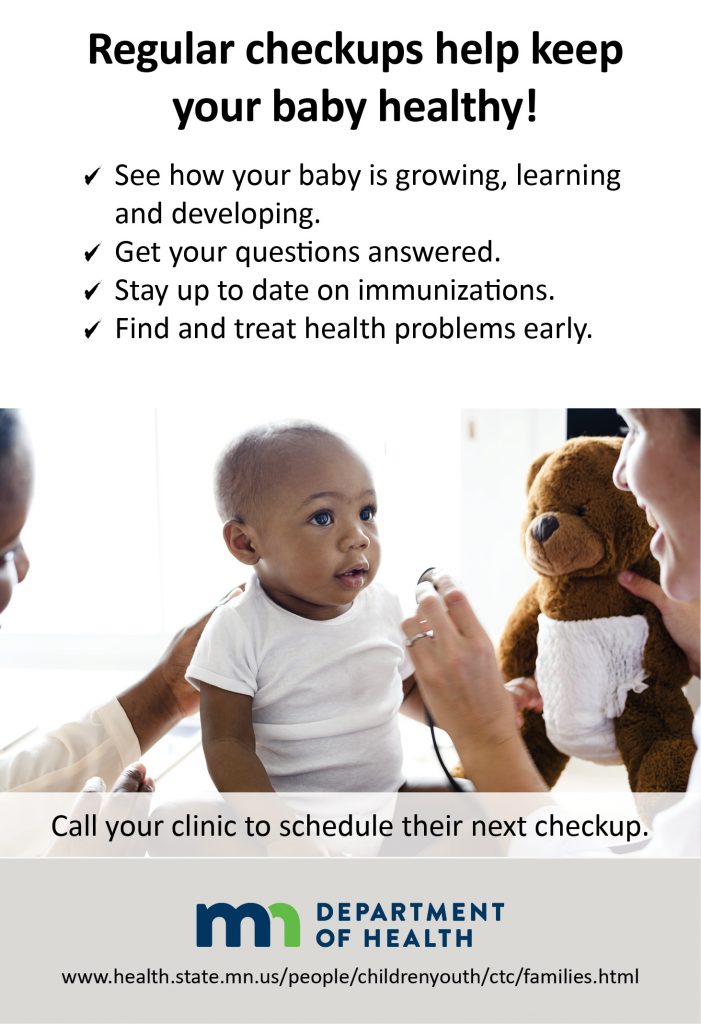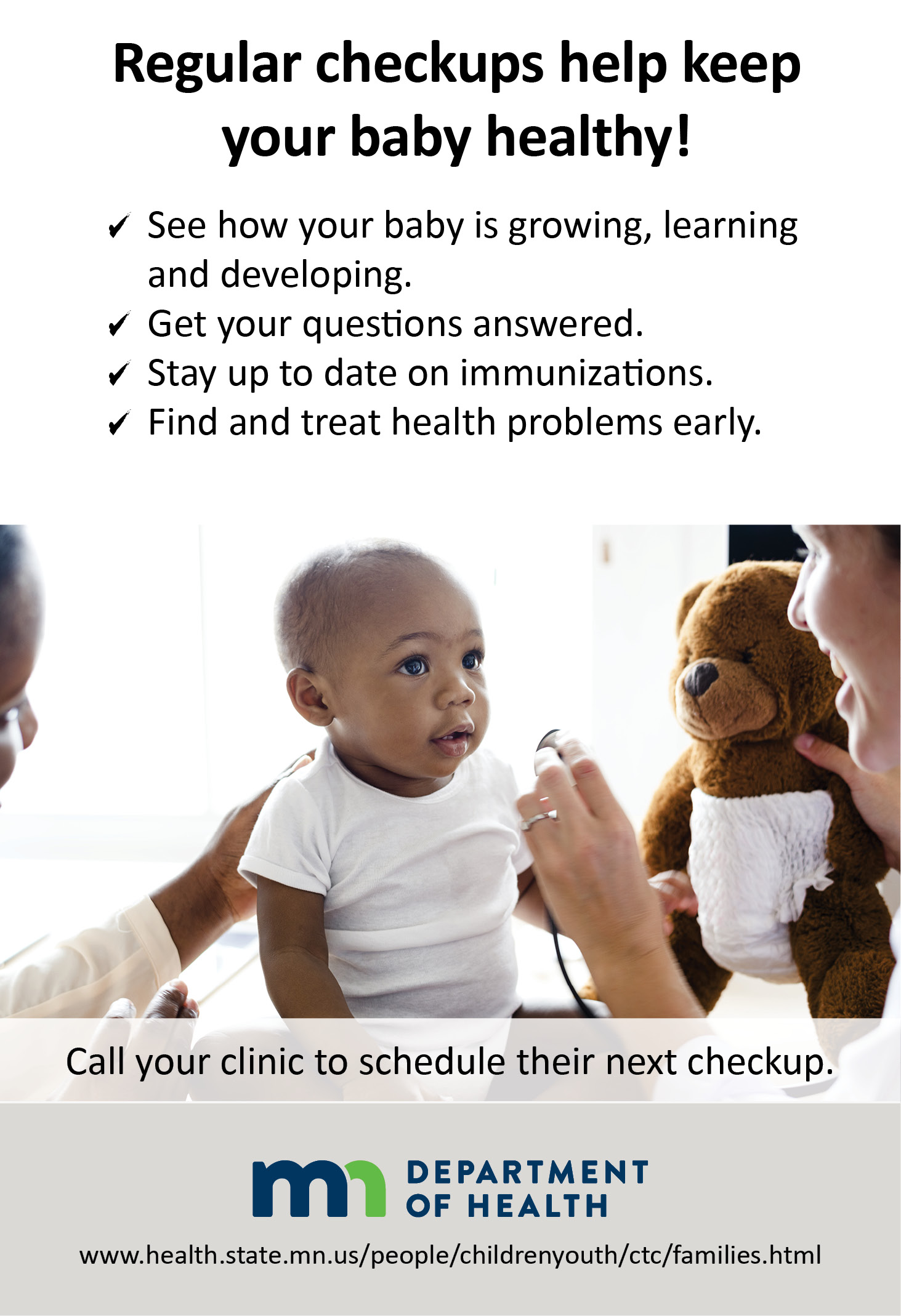

Having a new baby is an exciting time with lots of changes. Every day brings something new for you and your baby. It can also be a time of many questions, like: Is my baby growing as they should? Are they getting enough food? When should they be sleeping through the night?
It is normal to have questions and concerns about your baby’s health and well-being. You want what is best for your baby. Your baby’s health care provider will also want to check in with you about how you are doing and feeling. That is why scheduling regular checkups with your baby’s medical provider is so important.
These well child checks are recommended every 2-3 months from birth through about 2 1/2 years old. After that, your child should get a checkup once a year. At these appointments, the medical provider will make sure your baby is growing, learning, and developing. They do this by checking for developmental milestones. Developmental milestones are skills your child learns such as taking their first step, smiling, waving, and pointing. At the checkup, the medical provider will learn more from you about what your baby is already doing, and they look at things like how your baby moves their body, interacts with others, explores and solves problems, and communicates.
Checking for developmental milestones early in a child’s life is important because it can help you and the medical provider identify any concerns early. If your child is not meeting certain milestones when they should, there are often things you can do to help get them back on track. Your child’s medical provider will either work with you or help you find the right resources for your child. You can learn more about developmental milestones at www.HelpMeGrowMN.org. This website will give you information on what you can look for and help you prepare for your baby’s next checkup.
At checkups, your baby’s medical provider will also do a physical exam to make sure your baby is healthy from their head to their toes. They will do things like listen to your baby’s heart and check their hearing. They will also give recommended immunizations to protect your baby from diseases that could make them very sick.
During the appointment, the doctor or nurse will give you information about healthy food, sleep, behavior, and safety. This is also a great time to ask questions! You can ask questions about things like how to calm your baby when they are crying, what to do if they have a fever, and how to help your baby learn new things. Write down a list of questions to bring to the appointment so you do not forget them.
Regular checkups are important for keeping your baby healthy. Make sure you go to all of the recommended checkups. Your clinic can tell you when your baby needs to come in for their next appointment.
Recommended checkups are covered by insurance. If you do not have insurance, there are resources to help make sure your baby does not miss an important checkup. Your county or tribe’s health or human services department can help you apply for insurance or find a clinic.







